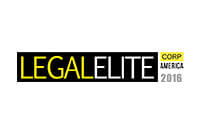Protect What Is Most Important To You
Complex litigation will arise in cases protecting high-value assets and winning hostile custody disputes.
Most Family Law cases do not involve high-value assets or hotly contested custody and do not require complex litigation. When high-value assets need to be protected through litigation, those cases will require expert property and business appraisals, valuations, analysis, and attorneys that are comfortable and skilled in using those tools. Highly contested custody cases will likely require the assistance of a respected child psychologist, above average Guardian ad Litems, and attorneys that know who they are and how to work with those experts. Complex litigation will arise in cases protecting high-value assets and winning hostile custody disputes.
If you add to that, problems caused by an opposing spouse who is intentionally distorting the facts and hiding the evidence, you will need expert pre-trial discovery to get to the truth and win your case.
Complex litigation cases are decided based on facts and evidence presented in mediation or trial, but you cannot present evidence that you do not know or possess. For that reason, thorough “pre-trial discovery” by an experienced trial lawyer is even more important in complex pre-trial litigation than in the trial itself. Solid pre-trial discovery is the foundation of a winning case at trial.
Cases consisting of simple straightforward issues, modest assets, and uncontested facts do not require the time and expense of pre-trial discovery. The known facts and easy to understand evidence are simply presented in a reasonable manner to the judge.
However, when dealing with the appraisal of commercial real estate, valuation of companies, determining long-term incomes, evaluating significant accumulations, and proving misrepresentations on custody and visitation, the facts and evidence are no longer simple and straightforward. If you add to that, problems caused by an opposing spouse who is intentionally distorting the facts and hiding the evidence, you will need expert pre-trial discovery to get to the truth and win your case.
What is “pretrial discovery”?
Our Court Rules provide several tools for litigants to use to “discover” facts known to, and evidence in the position of, the opposing party. Knowing these tools, and how to best use them, is the key to success at trial.
Interrogatories
This first step in pre-trial discovery is simply a document consisting of written questions sent by one party to the other to be answered under oath. The opposing party has no choice but to answer interrogatories and must do so within 30 days of receiving the questions. Interrogatories may only be sent to the opposing party, and not to general witnesses.
The scope of permitted questions is extremely broad. Any question that ”may lead to admissible evidence” is allowed. To be effective in this process you will need a legal team that is fully informed of your goals in the divorce, the issues that must be resolved, and the evidence needed to prove each point. Your attorney must know how to draft the questions to avoid evasion and to obtain complete answers. Often you will have to use two or even three sets of interrogatories during pre-trial discovery as the case evolves.
A value of interrogatories beyond discovery is that they can be used to lock the opposing party into their version of the facts under oath and, thereby, avoid surprise testimony at trial.
With your personal happiness and financial well being on the line, you will want to thoroughly prepare with an experienced quality trial lawyer
Request for Production
The second step in pre-trial discovery is to obtain copies of documents and tangible properties by sending a document to the opposing parties requesting they produce a copy of desired documents or examination of tangible properties. Again, they must produce the requested items within 30 days of receiving the request and the request can only be sent to the opposing party, and not to non-parties.
This tool is essential in complex litigation where the opposing party will often attempt to conceal and distort important documents and evidence. The allowed scope of the request is extremely broad. You can request bank and financial records; company records; loan documents; deeds; credit card statements; school and medical records; correspondence; computer files; and emails. You must use Request for Production in pre-trial discovery to be properly prepared for trial.
Request for Admissions
This is a discovery document, addressed to the opposing party, which requires them to “Admit or Deny” specific facts contained in requests for admission. The opposing party cannot object, qualify or partially answer. The admissions of these facts are used as conclusive proof of the issue at trial, and no additional evidence need be presented. The request for admissions is used to greatly narrow the issues that must be proven at trial. If a request for admission is denied and then later proven to be true at trial, the denying party will be required to pay all of the cost incurred by the other party to prove the denied fact. This is a great tool in contentious cases.
Depositions
After completing the paper discovery tools, you will need to subpoena the opposing party, and any other potential witness, to appear at your attorney’s office for verbal questioning under oath. The opposing party, and any other potential witnesses must appear and must answer the questions directed to them under oath. This is the final step in pre-trial discovery. You are able to totally explore the opinions and testimony of the opposition. You are able to lock them into their version of the facts, their opinions, and their demands that they cannot change at trial.
It is impossible to be ready to successfully go into mediation or trial until you possess a full and complete understanding of every opinion, version of the facts, and evidence that the opposition intends to present against you. This is the heart and soul of complex litigation – thorough preparation.
Expert witness selection and development is another step in proper preparation for complex litigation. Your attorney must know the best expert to call upon for each issue you face. The expert witnesses must be truly qualified experts in their field, but also must be excellent witnesses on the stand at deposition and trial. They must be well skilled in evaluating and counseling you and your child, valuing your business, analyzing your retirement program, or appraising your real estate. Then they must deliver testimony that effectively explains their opinions and the basis of their opinion. Their job is to make the complex understandable. Quality expert witness testimony is essential to winning complex cases.
Your Testimony
Once you have completed thorough and efficient pre-trial discovery you are ready to begin preparation for a professional presentation of your case at trial. That is an entirely different process. Proper delivery of testimony and exhibits is just as important as what you say.
You will review all prepared direct examination, and anticipated cross-examination, questions, and answers. You will practice the delivery of your answers. You will rework the wording of proper and concise answers. You will learn to control your emotions and to anticipate the question from the opposing attorney. Tough trial preparation will relax you for trial and avoid embarrassing and damaging mental and verbal blunders. You will seldom have more at risk than during your divorce trial.
With your personal happiness and financial well-being on the line, you will want to thoroughly prepare with an experienced quality trial lawyer.











